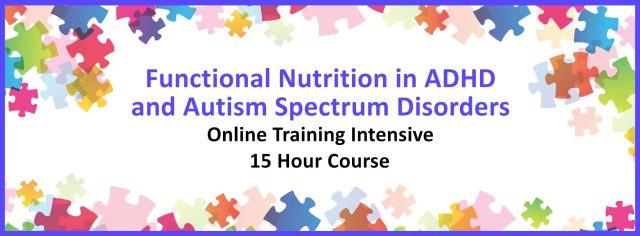ADHD and ASD Often Coexist…
Both ADHD and ASD are neurodevelopmental disorders (brain development has been affected in some way). That means both conditions/disorders affect the central nervous system, which is responsible for movement, language, memory, and social and focusing skills. ASD has many similarities to ADHD, but there are also differences between the two.
More than half of all individuals who have been diagnosed with ASD also have signs of ADHD. In fact, ADHD is the most common coexisting condition in children with ASD. On the flip side, up to a quarter of children with ADHD have low-level signs of ASD.
Although adults can have both ADHD and ASD, the combination is not as common as it is in children. While ASD is considered a lifelong disorder, long-term studies have shown that in one-third to two-thirds of children with ADHD, symptoms last into adulthood.
Let’s Get on Top of This!
In this informative training, we’ll examine the various subtypes under the umbrella of autism spectrum disorders (ASD) and potential, contributing factors for ASD development. The critical roles of methylation and genomics, oxidative stress, gastrointestinal function, microbiome, and the immune system will be explored in depth.
You will be provided comprehensive coverage of the clinician’s role in the management of ADHD/ASD disorders, including implementing specialty diets, diet dos and don’ts, interventions for difficult eating behaviors, and supplemental support options. Various adjunct therapies will also be explored.
Use the Functional Medicine “System’s Biology” Approach to Gain More Tools in Your Toolbox and the Skills it Takes to Impact Health More Than Ever Before!
Course Objectives:
After completion of this training, learners will be able to:
- Describe how Autism is multi-factorial in origin and how the conditions/behaviors develop as a result of those factors.
- Identify the role of gastrointestinal function, immune system, and microbiome in ADHD and Autism.
- Explore the impact of chronic exposure to toxins on the body and how to assist the methylation pathways when a child is genetically vulnerable.
- Summarize the potential impact of various foods on ADHD/ASD symptomology and the challenges of feeding this population.
- Discuss the role of dietary supplements and how to effectively use them while keeping in mind methylation, genetics, and methods of ingestion.







